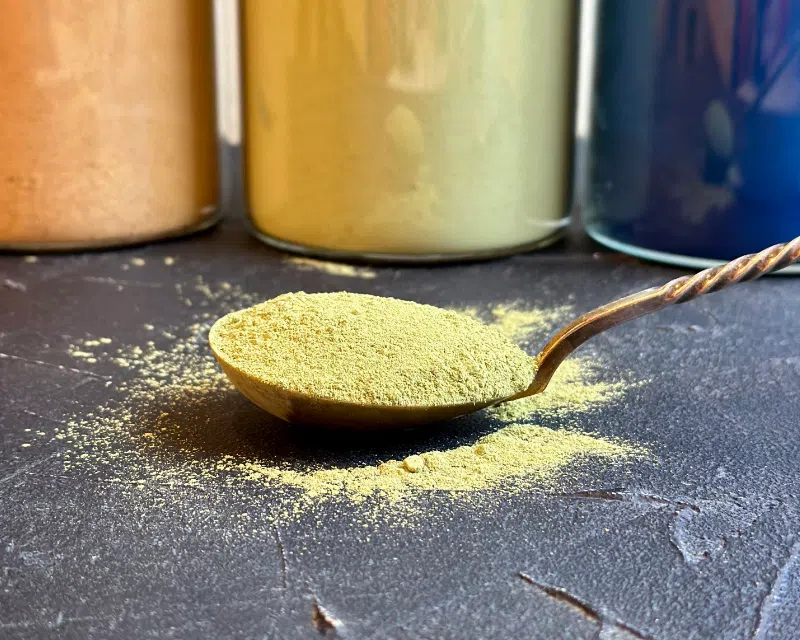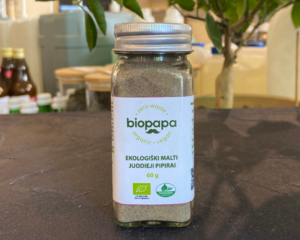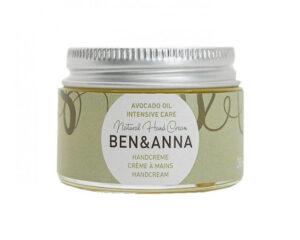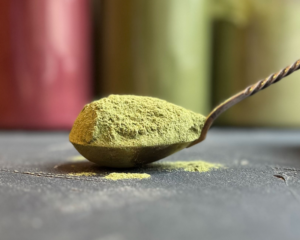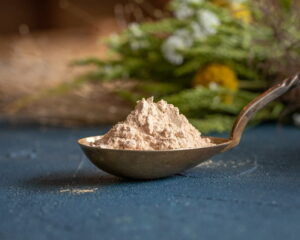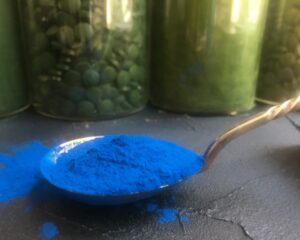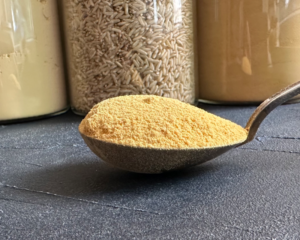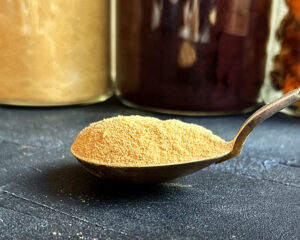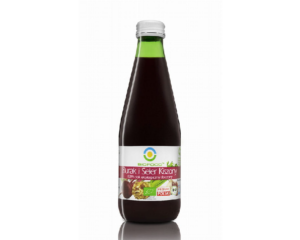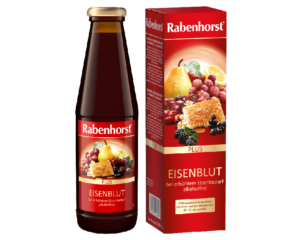Organic neem powder
From 1.70€
Neem (Azadirachta indica) is a tree native to the Indian subcontinent, which also grows in various parts of Southeast Asia. The neem tree, which has been used in Ayurveda for centuries, has been nicknamed the “Divine Tree” or “Nature’s Pharmacy” for its many health benefits. This evergreen tree flourishes in the arid regions of India, and almost every part of it, from the leaves to the bark and seeds, has been put to good use.
Traditional uses of neem wood:
Ayurveda, in the ancient Indian medical system, neem tree is often used to treat a wide range of ailments, from skin diseases to digestive problems. 1. Skin and hair care – neem leaves and oil are traditionally used for their anti-inflammatory, antibacterial and antifungal properties. Neem tree-based mixtures are used topically to relieve skin problems such as acne, eczema and psoriasis. Neem oil is also a popular natural remedy for improving hair and scalp health. 2. Oral health – Neem tree branches have been used for centuries as natural toothbrushes in India because of their antibacterial properties. Neem-based toothpaste and mouthwash are still popular. 3. Digestive health – neem trees are used to treat a wide range of digestive problems, including indigestion, bloating and intestinal parasites. 4. Insecticide – the natural insecticidal properties of the neem tree make it a common ingredient in mosquito repellents and agricultural pest control.
Modern benefits of Neem powder:
The virtues of the neem tree have not faded with time;
they have gained recognition in the field of modern health care and research.
Studies have shown that neem tree has detoxifying and cooling properties.
It also boosts immunity and removes toxins from the digestive tract.
1. Anti-inflammatory properties – neem tree contains compounds such as nimbin and nimbidin, which have potent anti-inflammatory effects.
Neempowder is useful in the treatment of diseases characterised by inflammation, such as arthritis. 2. Antibacterial and antifungal properties – make it effective in the treatment and prevention of both internal and external infections. 3. Skin care – the anti-acne, anti-ageing and skin cleansing properties of neem continue to be used in skin care products such as creams, lotions and masks. 4. Tooth health – Modern tooth care products often contain neem as it has a proven ability to fight bacteria and tooth decay, promoting oral health.
Attention!
N
Excessive intake of Echinacea powder can cause digestive problems such as stomach upset and diarrhoea.
It should be used in moderation.
Neem tree is not recommended for use by pregnant or breastfeeding women as it may have contraceptive effects.
When planning a child, neem powder should not be used by both partners.
Usage: Neem powder is versatile and can be used in many ways. Skin care – create masks or creams by mixing neem powder with water or other natural ingredients such as agave syrup or oil. Hair care – mix neem powder with water or oil to create a nourishing hair mask that promotes scalp health and hair growth. Insecticide – Neem powder can be mixed with other ingredients to create natural insecticides for personal use or gardening. Internal use – Neem powder should be used sparingly. TaIt has a bitter taste.
The recommended daily allowance is 1/2 -1 teaspoon.
twice daily with water after meals.
Do not use for longer than 3 months.
Sources:
https://global.planetayurveda.com,
https://www.webmd.com
NB! The information provided here should not be interpreted as a recommendation for treatment or other types of health problems. We recommend that you make personal health decisions after evaluating different sources of information.
100% Organic neem powder
-
Store in a cool, dark and dry place.

